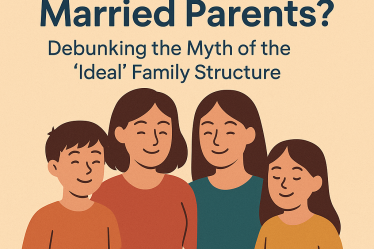
Open marriages, a form of consensual non-monogamy, are increasingly gaining attention as couples explore alternatives to traditional monogamous relationships. This article examines whether non-monogamy can strengthen a relationship by analyzing various aspects, including benefits, challenges, and real-life examples.
Understanding Open Marriages
An open marriage is one in which partners agree that each may engage in extramarital sexual or romantic relationships without considering it infidelity. This arrangement differs from traditional monogamy, where exclusivity is expected. Forms of open marriages include swinging and polyamory, each with varying levels of partner involvement.
Potential Benefits of Open Marriages
- Enhanced Communication: Open marriages often require clear and continuous dialogue about boundaries, desires, and expectations, fostering deeper communication between partners.
- Increased Satisfaction: Some studies have found that couples in open marriages report high levels of satisfaction. For instance, a study by Wolf found that 76% of couples in open marriages described their relationship quality as “better than average” or “outstanding.” en.wikipedia.org
- Personal Growth: Engaging with multiple partners can lead to personal development, as individuals explore different aspects of their sexuality and emotions.
- Sexual Variety: Open marriages can provide sexual diversity, which may enhance overall relationship satisfaction.
Challenges and Considerations
- Jealousy: A significant challenge in open marriages is jealousy. Studies have shown that around 80% of couples in open marriages experience jealousy over their extramarital relationships.
- Social Stigma: Non-monogamous relationships often face societal judgment, which can strain the individuals involved.
- Risk of Divorce: Some research indicates a slightly higher risk of divorce among couples who engage in extramarital sex, even with mutual consent.
- Complex Dynamics: Managing multiple relationships requires time, energy, and emotional intelligence, which can be challenging.
Real-Life Examples
Several couples and individuals have publicly shared their experiences with open marriages:
- Jem and Daz Jones: This couple credits swinging, a form of ethical non-monogamy, with saving their marriage, which was strained by business pressures. They found that exploring non-monogamy reignited their connection and now assist other couples interested in the lifestyle.
- Alice and Matthew Lovegood: Alice discovered she was polyamorous and, after discussing it with her husband Matthew, they opened their marriage. Despite initial reluctance, Matthew embraced the arrangement, and they both found deeper emotional and sexual connections, strengthening their relationship.
- Débora and Anderson Peixoto: Married for seven years, this couple formed a throuple with Luiza Marcato. They established specific rules and a detailed contract to maintain harmony, emphasizing trust and mutual respect.
Expert Opinions
Experts emphasize the importance of communication, consent, and clear boundaries in open marriages:
- Shailene Woodley: The actress has spoken about the significance of honesty, communication, and trust in any relationship dynamic, including non-monogamous ones.
- Paul Keable: The Chief Strategy Officer of Ashley Madison notes that affairs and non-monogamous arrangements are becoming normalized, especially among younger generations who reject the shame associated with traditional views on infidelity.
Statistical Insights
Recent studies provide insight into the prevalence and dynamics of open marriages:
- Prevalence: Over one-fifth of the U.S. population has engaged in some form of consensual non-monogamy.
- Satisfaction Levels: Research by Bergstrand and Williams found that couples in open marriages reported higher levels of satisfaction than those in the general population.
Open marriages present both opportunities and challenges. While they can enhance communication, personal growth, and satisfaction for some, they also require navigating jealousy, societal stigma, and complex dynamics. The success of such arrangements largely depends on the individuals involved and their commitment to transparency, consent, and mutual respect. As societal views on relationships evolve, open marriages may become more accepted, offering alternative frameworks for fulfilling partnerships.



